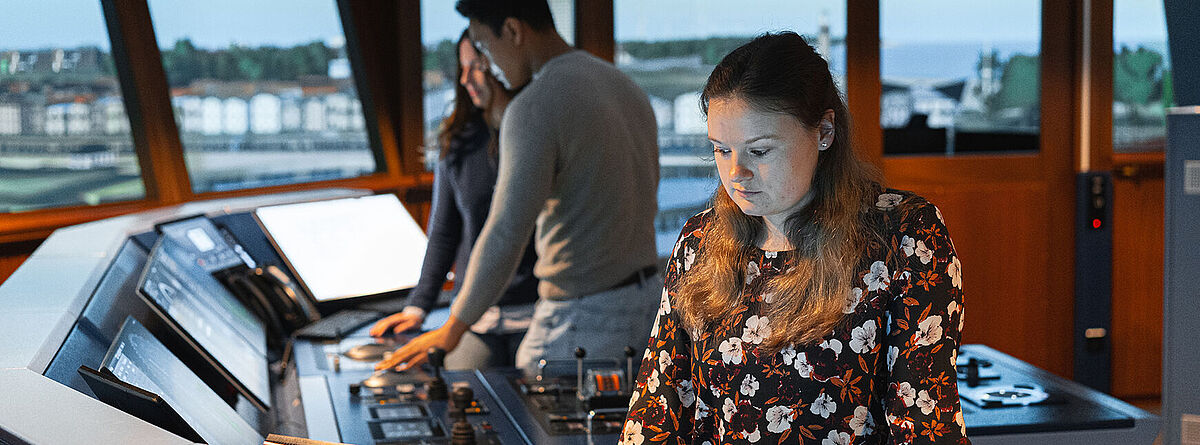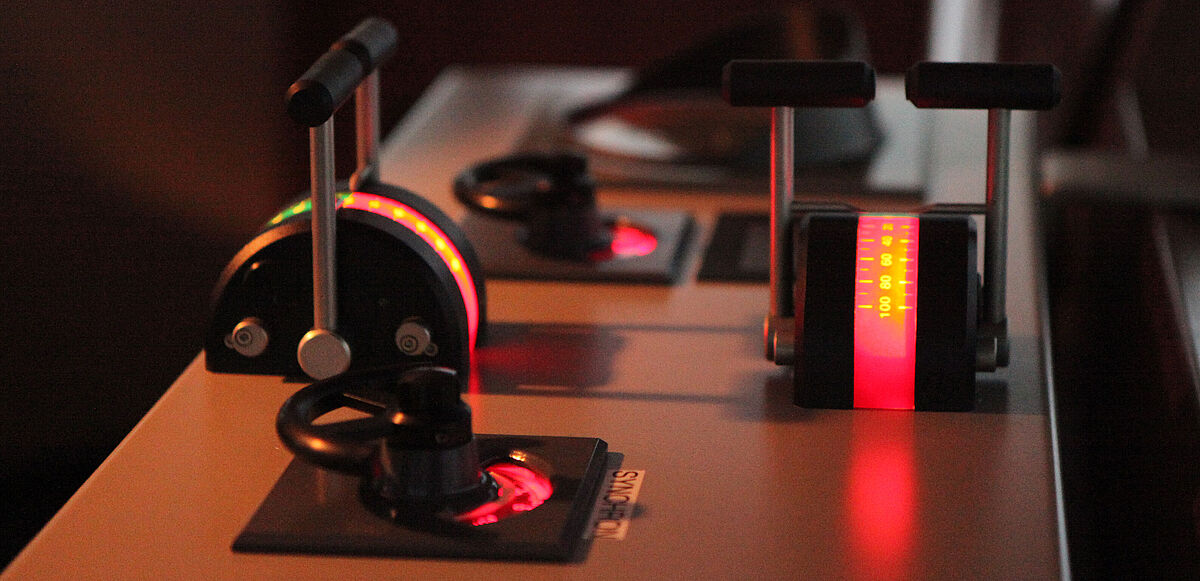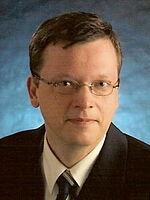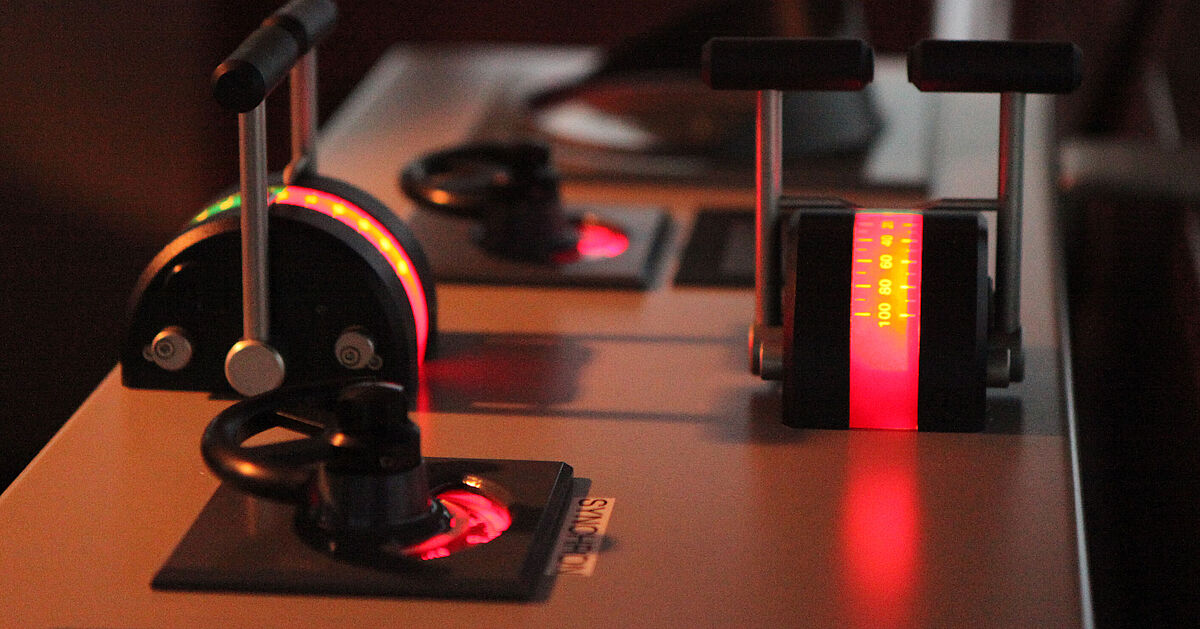Field of studies
Nautical Science/Maritime Transport
Studying at the Department of Maritime Studies, Systems Engineering and Logistics
Academic Degree
Bachelor of Science (B.Sc.)
Faculty
Engineering
Campus / Distance learning
Studies on campus
Normal period
8 Semester
Start of studies
to the summer semester
Place of study
Indonesien
Classroom Languages
english
- Hochschulzugangsberechtigung gemäß §§ 17 bis 19 des Landeshochschulgesetzes M-V
oder
- Nachweis des Abschlusses einer indonesischen "Senior Highschool" (SMA, SMK oder MA) und
- erfolgreich bestandene nationale universitäre Aufnahmeprüfung für Indonesien.
Anmerkung der Hochschule:
Die Studierenden des Bachelorstudienganges „Nautical Sciences/Transport Operations“ sind an der Hochschule Wismar, University of Applied Sciences: Technology, Business and Design eingeschrieben. Der Bachelor-Studiengang wird von der Hochschule Wismar in Indonesien, Semarang in Kooperation mit dem Politeknik Maritim Negeri Indonsia (PoliMARIN) angeboten. Das PoliMARIN ist eine staatlich anerkannte Einrichtung für höhere Bildung mit Schwerpunkt auf dem maritimen Bereich. Die Lehrveranstaltungen finden in den ersten fünf Semestern am PoliMARIN statt, das sechste und siebte Semester sind für das Seepraktikum vorbehalten und das letzte Semester wird an der Hochschule Wismar in Deutschland unterrichtet. Den Absolventen des Studiengangs „Nautical Sciences/Transport Operations“ wird ein Bachelor Zeugnis der Hochschule Wismar verliehen.
Die Prüfungen im Anschluss an das Vorsemester am PoliMARIN dienen als Zulassungsvoraussetzung für die Immatrikulation an der Hochschule Wismar.

The main professional area for the graduates of this field of study as part of the Bachelor's degree course "Nautical Science/Transport Operations" is the ship’s command and the management as well as the navigational and cargo handling operations of a ship onboard modern container vessels, ferries, tankers and special purpose ships.
Furthermore, there is a variety of interesting possibilities in ports or cargo handling plants, in ship supervisory authorities, in maritime traffic control centers or in the fields of logistics.
Another professional area for graduates is the growing cruise industry sector.
Your professional perspective
A description of the job profile by one of our students:
There is no training that makes you Captain. It is experience, good performance and the reception of your shipping company that makes you Captain. Still you are right. Without training you are not going to be Captain. And the necessary education you can gain at the Department of Maritime Studies. The most diversified studies indicate a most diversified professional life. That I want to describe hereafter:
After graduating you are able to work as Officer in charge on navigational watch for a shipping company. There are shipping companies, which work with four navigational Officers; usually it is just three of them. The technical and nautical Officers and the Captain belong to the management level on board. Management level implies responsibility – responsibility for the crew, the ship, the cargo and the environment.
If we take a closer look in the area of responsibility of nautical Officers, it gets clear why the study covers such a wide spectrum. The nautical Officer is not just on watch, even I have to admit, that the navigational watch takes a relatively big part of his working time. During watch the ship is guided safely by means of navigation equipment and the sea chart. The nautical Officer observes the traffic situation and takes actions to prevent accidents and damages. The 3rd and the 2nd nautical Officers divide the responsibility areas of safety, chart work, route planning, clearance and health care. Depending on shipping company and vessel these tasks are divided differently. The 3rd nautical Officers have the 8-12-watch. That means from 8.00 am until noon and from 8.00 pm until midnight. Shortly before 12 the 2nd nautical Officer approaches the bridge, the handover of the watch takes place. The watch from midnight until 4.00 am is called “dog watch”. For some people it is their favorite watch, because it is the quietest time, for others it is a sleeping pill. The 4-8-watch is done by the 1st nautical Officer, also called the Chief Mate. Besides his 8 hours of watch he has other areas of responsibility: He takes care of the cargo, he is the Ship Safety Officer (or his deputy), he makes the work planning for the deck crew and he has a lot of paperwork. You can be Chief Mate after approximately two years of seagoing.
If you prove yourself in this position, the Ship Master’s certificate is not far. But what does it mean to be captain? He has to carry a lot of responsibility, corresponding to that he has higher wages. The master calls the shots on board. But he also has to be always available, if something doesn’t work properly. He represents the company. That’s why he has a lot of paperwork and communication with shore is also his area of responsibility. If the ship arrives intact in port after a period of bad weather, it is to a large extend due to him, because he has to make the essential decisions.
Speaking of "English": The language on board of actually all merchant vessels is English. Fluent English is indispensable because of the international crew on the one hand and on the other hand the communication with the shore authorities, which is also done in English language in every port. A lot of it is “learning by doing”, but the Department of Maritime Studies also offers competent education in English language.
And what if the job no longer meets your ideas anymore? Don’t panic! Sooner or later everybody finds its place, if it is in a shipping company, in the inspection service, in a port, in a maritime related company or in research.
Qualification goals
Since the graduates of this field of studies immediately take on activities with a high level of responsibility for passengers, crew, cargo and ship, these management skills are developed in accordance with international requirements. The following qualification goals should be emphasized:
- a broad, scientifically sound basic knowledge,
- the specialist knowledge necessary for professional practice,
- the language requirements and multicultural knowledge,
- scientific work, interpretation and presentation of results,
- analytical thinking skills,
- independent action, ability to work in a team and persuasiveness,
- safe, environmentally conscious and economical action.
The course content corresponds to the current state of technology and science and takes into account the unity of research and teaching.
For graduates, leading teams is an essential part of their later professional tasks. For this purpose, the students receive intensive training, their personal development sharpened and their skills in social interaction with people emphasized and deepened.
In addition to the basic modules such as mathematics, physics, computer science, technical mechanics, law, business administration, etc., students also take specific modules such as sociology, psychology, chemistry, thermodynamics, electrical engineering, etc. and thus receive extensive socio-technical basic knowledge. The in-depth specialist modules of the respective field of study result in a profession-oriented expression. For the field of studies: Nautical Science/Maritime Transport this is e.g. Navigation, ship management, meteorology, cargo engineering, emergency management, etc. A corresponding portion is led by experienced navigators in addition to the lectures in the form of laboratories, seminars, internships and training in the ship handling simulator. In addition to specialist knowledge, method and social skills are shaped here.
The same applies to the major in the field of studies: Transport Operations and Logistics (VBL). In addition to the courses in the form of laboratories, seminars, internships, excursions, etc., the necessary knowledge is imparted and personal development is shaped for the subject-specific modules such as traffic theory, traffic management, traffic planning, traffic safety, traffic simulation, etc.
In the respective project weeks, acquired knowledge is deepened, special skills are trained, the state of the art is analyzed, the framework conditions of the respective operational processes are presented, the linguistic competence is trained and thus overall key qualifications are shaped.
The scientific work is conveyed in basic modules and characterized in several specialist modules through analyzes, lectures, presentations, etc. In the Maritime English module, the previous linguistic knowledge is deepened in order to be internationally active and competitive. In the personnel management module, joint projects, presentations, special seminars and training in the simulator as well as the follow-up to excursions, social skills and teamwork are strengthened. Graduates are optimally prepared for professional practice thanks to the high quality of teaching and the provision of key qualifications.
There are various channels available to prospective students and students to find out about the core competencies of the course. A comprehensive description of the course is available on the UAS Wismar website. The module descriptions in the module handbook give a detailed overview of the entire content of the course.
Academic counselling
Student counselling
 Jana FischerDipl.-Kff.EmployeeSeefahrt, Anlagentechnik und Logistik
Jana FischerDipl.-Kff.EmployeeSeefahrt, Anlagentechnik und Logistik
Application Process
All international applicants have to register in the application online portal. Further information about the application process can be found here – Applications for full-time studies.
Student Support
If you have any questions about the application process, please contact our international office – it is the first point of contact for those who would like to join us as a student.
International office »
 Narangerel TsendbaatarDipl.-Wirtsch.jur. (FH)Employee
Narangerel TsendbaatarDipl.-Wirtsch.jur. (FH)Employee
Living and studying in Rostock-Warnemünde
Your professional perspective
A description of the job profile by one of our students:
There is no training that makes you Captain. It is experience, good performance and the reception of your shipping company that makes you Captain. Still you are right. Without training you are not going to be Captain. And the necessary education you can gain at the Department of Maritime Studies. The most diversified studies indicate a most diversified professional life. That I want to describe hereafter:
After graduating you are able to work as Officer in charge on navigational watch for a shipping company. There are shipping companies, which work with four navigational Officers; usually it is just three of them. The technical and nautical Officers and the Captain belong to the management level on board. Management level implies responsibility – responsibility for the crew, the ship, the cargo and the environment.
If we take a closer look in the area of responsibility of nautical Officers, it gets clear why the study covers such a wide spectrum. The nautical Officer is not just on watch, even I have to admit, that the navigational watch takes a relatively big part of his working time. During watch the ship is guided safely by means of navigation equipment and the sea chart. The nautical Officer observes the traffic situation and takes actions to prevent accidents and damages. The 3rd and the 2nd nautical Officers divide the responsibility areas of safety, chart work, route planning, clearance and health care. Depending on shipping company and vessel these tasks are divided differently. The 3rd nautical Officers have the 8-12-watch. That means from 8.00 am until noon and from 8.00 pm until midnight. Shortly before 12 the 2nd nautical Officer approaches the bridge, the handover of the watch takes place. The watch from midnight until 4.00 am is called “dog watch”. For some people it is their favorite watch, because it is the quietest time, for others it is a sleeping pill. The 4-8-watch is done by the 1st nautical Officer, also called the Chief Mate. Besides his 8 hours of watch he has other areas of responsibility: He takes care of the cargo, he is the Ship Safety Officer (or his deputy), he makes the work planning for the deck crew and he has a lot of paperwork. You can be Chief Mate after approximately two years of seagoing.
If you prove yourself in this position, the Ship Master’s certificate is not far. But what does it mean to be captain? He has to carry a lot of responsibility, corresponding to that he has higher wages. The master calls the shots on board. But he also has to be always available, if something doesn’t work properly. He represents the company. That’s why he has a lot of paperwork and communication with shore is also his area of responsibility. If the ship arrives intact in port after a period of bad weather, it is to a large extend due to him, because he has to make the essential decisions.
Speaking of "English": The language on board of actually all merchant vessels is English. Fluent English is indispensable because of the international crew on the one hand and on the other hand the communication with the shore authorities, which is also done in English language in every port. A lot of it is “learning by doing”, but the Department of Maritime Studies also offers competent education in English language.
And what if the job no longer meets your ideas anymore? Don’t panic! Sooner or later everybody finds its place, if it is in a shipping company, in the inspection service, in a port, in a maritime related company or in research.
Qualification goals
Since the graduates of this field of studies immediately take on activities with a high level of responsibility for passengers, crew, cargo and ship, these management skills are developed in accordance with international requirements. The following qualification goals should be emphasized:
- a broad, scientifically sound basic knowledge,
- the specialist knowledge necessary for professional practice,
- the language requirements and multicultural knowledge,
- scientific work, interpretation and presentation of results,
- analytical thinking skills,
- independent action, ability to work in a team and persuasiveness,
- safe, environmentally conscious and economical action.
The course content corresponds to the current state of technology and science and takes into account the unity of research and teaching.
For graduates, leading teams is an essential part of their later professional tasks. For this purpose, the students receive intensive training, their personal development sharpened and their skills in social interaction with people emphasized and deepened.
In addition to the basic modules such as mathematics, physics, computer science, technical mechanics, law, business administration, etc., students also take specific modules such as sociology, psychology, chemistry, thermodynamics, electrical engineering, etc. and thus receive extensive socio-technical basic knowledge. The in-depth specialist modules of the respective field of study result in a profession-oriented expression. For the field of studies: Nautical Science/Maritime Transport this is e.g. Navigation, ship management, meteorology, cargo engineering, emergency management, etc. A corresponding portion is led by experienced navigators in addition to the lectures in the form of laboratories, seminars, internships and training in the ship handling simulator. In addition to specialist knowledge, method and social skills are shaped here.
The same applies to the major in the field of studies: Transport Operations and Logistics (VBL). In addition to the courses in the form of laboratories, seminars, internships, excursions, etc., the necessary knowledge is imparted and personal development is shaped for the subject-specific modules such as traffic theory, traffic management, traffic planning, traffic safety, traffic simulation, etc.
In the respective project weeks, acquired knowledge is deepened, special skills are trained, the state of the art is analyzed, the framework conditions of the respective operational processes are presented, the linguistic competence is trained and thus overall key qualifications are shaped.
The scientific work is conveyed in basic modules and characterized in several specialist modules through analyzes, lectures, presentations, etc. In the Maritime English module, the previous linguistic knowledge is deepened in order to be internationally active and competitive. In the personnel management module, joint projects, presentations, special seminars and training in the simulator as well as the follow-up to excursions, social skills and teamwork are strengthened. Graduates are optimally prepared for professional practice thanks to the high quality of teaching and the provision of key qualifications.
There are various channels available to prospective students and students to find out about the core competencies of the course. A comprehensive description of the course is available on the UAS Wismar website. The module descriptions in the module handbook give a detailed overview of the entire content of the course.
Academic counselling
Student counselling
 Jana FischerDipl.-Kff.EmployeeSeefahrt, Anlagentechnik und Logistik
Jana FischerDipl.-Kff.EmployeeSeefahrt, Anlagentechnik und Logistik
Application Process
All international applicants have to register in the application online portal. Further information about the application process can be found here – Applications for full-time studies.
Student Support
If you have any questions about the application process, please contact our international office – it is the first point of contact for those who would like to join us as a student.
International office »
 Narangerel TsendbaatarDipl.-Wirtsch.jur. (FH)Employee
Narangerel TsendbaatarDipl.-Wirtsch.jur. (FH)Employee



